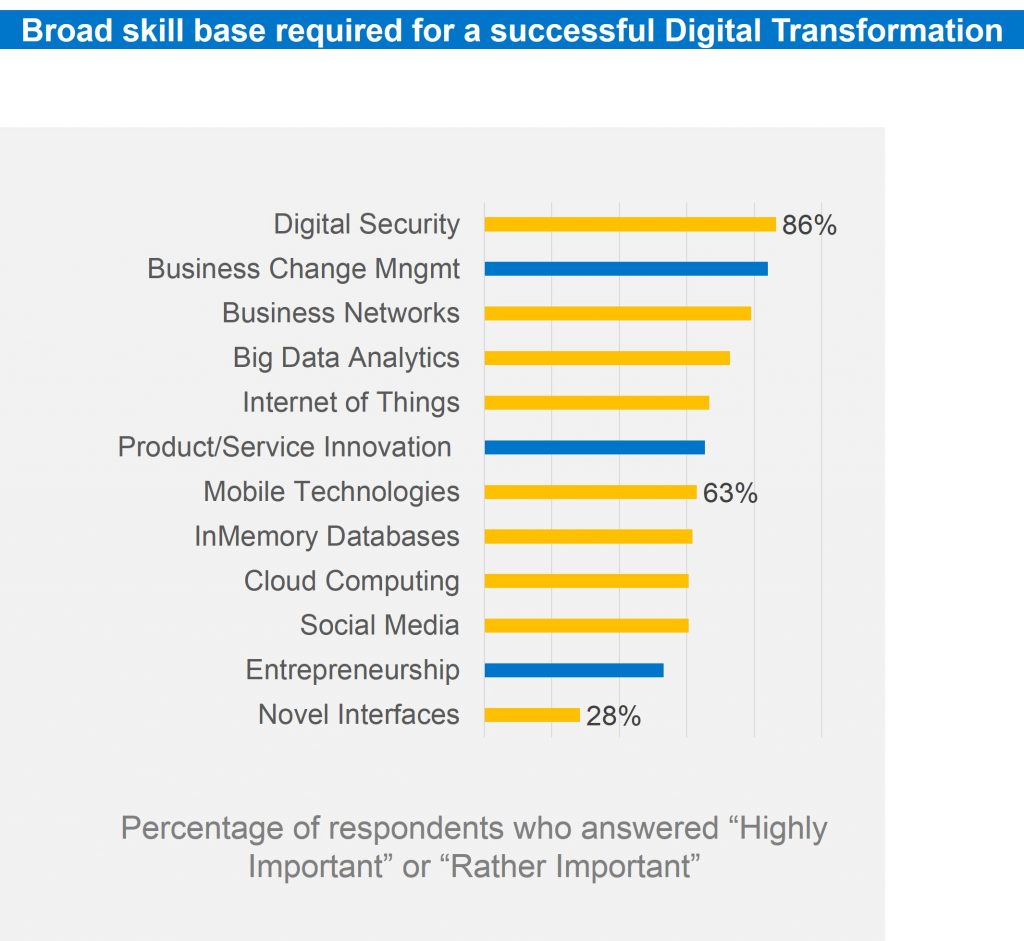
When it comes to the digital transformation, organizations need to make fundamental, cultural shifts across departments, and it starts with learning.
by Bernd Welz
May 13, 2016
The digital transformation – a buzzworthy phrase with unexpected staying power – continues to maintain its relevance and solidify its reputation as a change agent. Digital technologies are changing the face of business – and this unavoidable, rapid change often exceeds the pace of transformation organizations are equipped to undertake.
Technological innovations lead to disruptions, but when we talk about transformation, it is not just about innovations and their disruption on the business, it is also about how these technological innovations are adopted and used.
The “how” starts with action – creating a step-by-step plan of attack that informs and educates a business from the top down. At the foundational level, learning and skill acquisition are essential to compete and thrive in a digital business. Skills are a key building block to unleash the opportunities of digital transformation; however, gaps in cross-functional knowledge pose a major threat.
According to a 2015 study from Technical University of Munich and SAP SE, 57 percent of respondents state that business executives need extensive technology skills to be able to develop a successful digital transformation strategy for their company. Despite these numbers, most companies lack the relevant cross-functional knowledge necessary to do so. Today’s workforce is in the midst of a digital skills gap – simply put, companies are experiencing a substantial lack of qualified personnel necessary to transform. It is because of this skills gap, among other variables, that action needs to be taken now for three very important reasons: survival, relevancy and competitive edge.
A broad skill set of digital offerings is necessary to implement a successful digital transformation strategy, and ultimately to ensure a business’s survival. From business change management to mobile technologies, businesses are finding that the laundry list (see Figure 1) of relevant, desirable skills is comprehensive.

Here are a few strategies organizations can use to ensure they acquire these necessary digital skills and hone their competitive edge:
- Shift corporate culture to one that is open to change, where collaboration is fundamental.
- Employ interdisciplinary training to level the playing field from the top down in an organization.
- Embrace the digital transformation and its complexity, while implementing training programs first, and developing plans later, to best position businesses for success.
- Seek a trusted partner to support learning, discovery throughout the process is a definite value add.
Gone are the days of waiting out the storm; organizations need to make fundamental, cultural shifts across departments, and it starts with learning. Learning programs need to be tailored to how and when people learn best and then customized by industry.
Bernd Welz is executive vice president and global head of scale, enablement and transformation for SAP SE.



